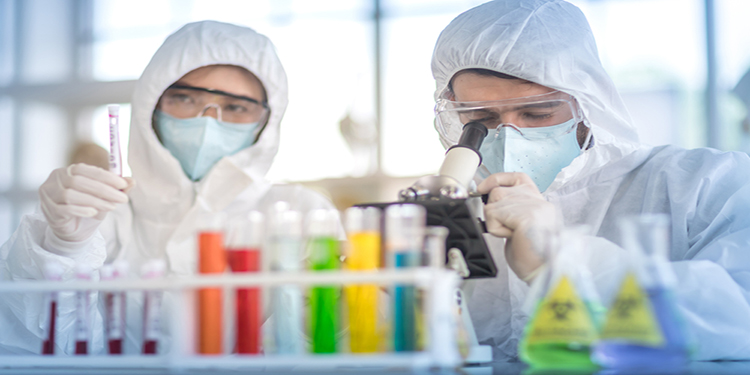Five companies have now been picked by the Trump administration as the most likely candidates to produce a coronavirus vaccine, The New York Times reports.
This comes as part of Operation Warp Speed (OWS), the administration’s national program to accelerate the development, manufacturing, and distribution of COVID-19 vaccines, therapeutics, and diagnostics.
Among its other objectives, Operation Warp Speed aims to have substantial quantities of a safe and effective vaccine available for Americans by January 2021.
The five companies selected are as follows:
Moderna’s (MRNA) mRNA1273 which is currently undergoing Phase 2 trials;
A joint collaboration between AstraZeneca (AZN) and Oxford University on AZD1222 which is now in clinical trials at multiple UK sites;
Johnson & Johnson (JNJ) which plans to start a Phase 1 clinical trial in September with an ultimate goal of supplying more than one billion doses of its coronavirus vaccine globally;
Merck (MRK) which is trying to develop a vaccine using similar technology to its successful Ebola vaccine through a partnership with non-profit research organization IAVI, and;
Pfizer (PFE) is working with German drugmaker BioNTech (BNTX) on clinical trials of BNT162, with plans to have a vaccine ready by the end of October, and produce “hundreds of millions” of doses in 2021.
GlaxoSmithKline and Sanofi did not make the cut.
On May 15 Operation Warp Speed revealed plans to select the most promising countermeasure candidates and provide coordinated government support to support their development.
Large-scale randomized trials for the demonstration of safety and efficacy will proceed for three to five of the candidates, with as many as 150,000 people vaccinated if all five vaccine candidates reach the Phase 3 stage.
Indeed, Congress has directed almost $10 billion to this effort through supplemental funding, including the CARES Act, with $3 billion directed for NIH research.
“Vaccines are coming along really well,” President Trump told the Twittersphere on Tuesday. “Moving faster than anticipated. Good news ahead.”
Shares in Moderna have exploded over 200% year-to-date, and optimism continues to rise after the company recently announced that it has started dosing the first patients in a Phase 2 study with its experimental mRNA-1273 vaccine candidate.
The Phase 2 study, being conducted by Moderna under its own Investigational New Drug (IND) application, seeks to evaluate the safety, reactogenicity and immunogenicity of two vaccinations of mRNA-1273 given 28 days apart. The biotech company plans to enroll 600 healthy participants across two cohorts of adults ages 18-55 years and older adults ages 55 years and above.
Earlier this month, Moderna reported “positive” interim clinical data saying that the Phase 1 study of its mRNA-1273 vaccine candidate produced antibodies that would be able to “neutralize” the virus in patients. The company reiterated plans to start the Phase 3 trial in July, subject to the finalization of the clinical trial protocol.
Five-star analyst Cory Kasimov at J.P. Morgan recently reiterated a Buy rating on the stock, saying “How to appropriately capture this in MRNA’s valuation is a tough question to answer (especially given all the unknowns around COVID-19 and the ultimate opportunity) and one that we suspect will be a key investor debate going forward.”
Overall, Wall Street analysts are bullish on Moderna stock with 10 Buy and 2 Hold ratings giving it a Strong Buy consensus. Despite the recent rally, the $89.33 average price target still indicates 50% upside potential from current levels. (See Moderna stock analysis on TipRanks).

Related News:
Gilead Sinks 3% On New Remdesivir Data; Analysts Stay Sidelined
Pfizer Loses 6% On Disappointing Ibrance Breast Cancer Outcome
Novavax Seeks To Make 1 Billion Covid-19 Vaccine Doses
















